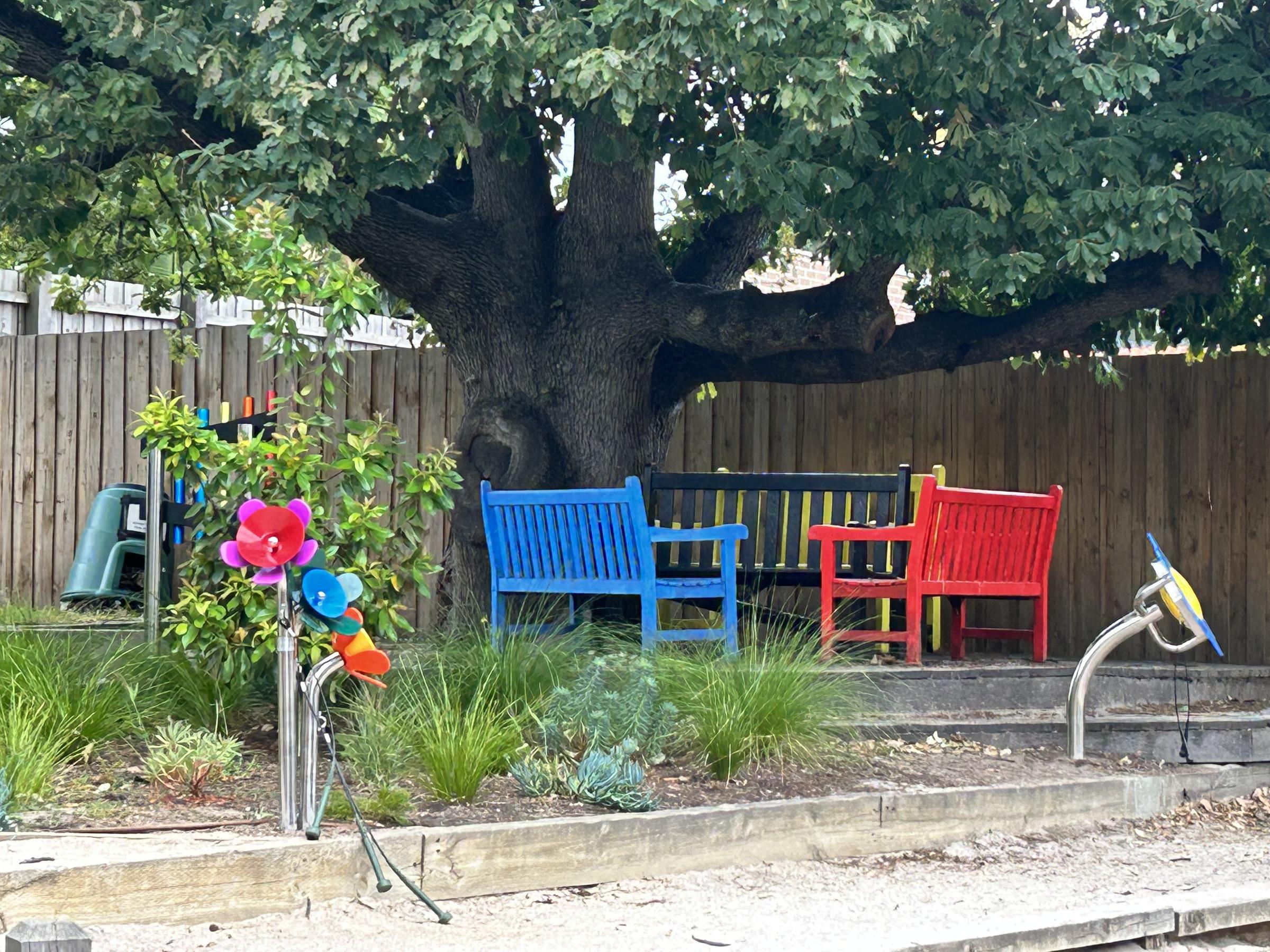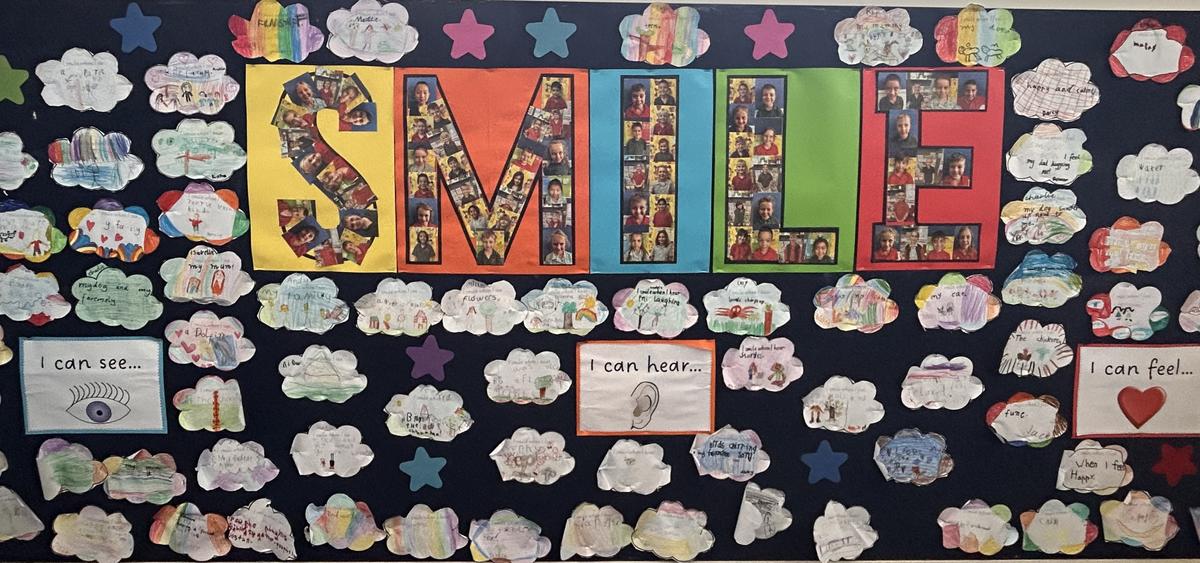Wellbeing
Amanda Howe | Assistant Principal

Wellbeing
Amanda Howe | Assistant Principal
When asked “what do you want most for your kids in life?” most parents answer “to be happy”. While much of what has influenced kids’ mental health and happiness in recent years is outside the realm of influence, their long-term happiness is something you can cultivate by implementing and teaching happiness habits and practices. Following is an important selection of these represented them by the acronym FLOURISH.
Flow is the experience where kids lose all sense of time. When in flow they’re beautifully engaged in their activity, an experience often described as being ‘in the zone’. If flow is to be experienced, children and young people need to have an appropriate level of skill to rise to the challenge at hand. When the balance is just right flow feels wonderfully satisfying and produces happiness.
Laughter makes kids happier while at the same time helps them breathe more deeply, calming their nervous system and reducing stress. Research shows that the number of times kids laugh each day reduces as they get older. The same applies to play. You can change that by creating ample opportunities for both. Games like Pictionary and Pie Face tick both boxes!
Optimistic thinking can be taught and has been shown to reduce the likelihood of depression. A great strategy to teach kids relates to 3 Ps- personal, pervasiveness and permanence. When things go wrong help your kids to understand that what happened is not personal, pervasive (a tendency to spread) or permanent.
This is a game changer! More family meals together equate to better grades, fewer depressive symptoms, less adolescent smoking and less drinking of alcohol among kids. Family meals also bring families closer, strengthening relationships which are at the heart of lifelong happiness.
Having more friends and good relationships is a strong predictor of happiness in childhood and beyond. You can help boost your kids’ social networks by opening your home to their friends and encouraging your kids to spend time with friends from a variety of social circles. Connecting in-person and online helps bolster kids’ friendships.
Kids need at least an hour a day of exercise, preferably outside and including high intensity fun. Exercise promotes the production of ‘feel-good’ chemicals which boost happiness and helps reduce the stress response. Help your kids make connections between the activity they do and how good they feel during and afterwards to encourage exercise for life.
Kids’ ability to self-regulate is an important piece of the happiness puzzle. Their ability to delay gratification predicts their ability to cope better with frustration and stress. Help your kids build self-regulation skills in a variety of life domains including eating and drinking, sleep, play, screen-time, homework and catching up with friends.
Being kind makes kids happy and you can nurture kindness in your kids through what you do. Genuine compliments, handwritten notes of thanks, saying good morning to a stranger or even picking up litter are all acts of kindness you can role model. Kids are said to close their ears to advice but open their eyes to example. It’s comforting to know that there is a lot you can do to promote a sense of happiness in children and young people.
The FLOURISH acronym is a reminder of a powerful framework you can use to boost your kids’ wellbeing and content over the long-term.
AUTHOR
Dr Jodi Richardson
Dr Jodi Richardson helps people to reduce their anxiety, strengthen their wellbeing, live by their personal values and achieve resilience and lasting happiness. Her research-based advice is grounded in a career of extensive university studies, clinical practice, education and endless compassion. Jodi is the co-author of the highly acclaimed book Anxious Kids. Her latest release is Anxious Mums: How mums can turn their anxiety into strength. For further details visit www.drjodirichardson.com.au


One of our lovely grandparents has donated mindfulness cards for us to sell to our community as a fundraiser for our school.
These are beautifully designed and packaged cards that would make a wonderful addition to your wellbeing practices at home.
This set of cards is a collection of mindfulness exercises for kids that has been offered generously by a hand selected group of psychologists, school teachers, meditation teachers and yoga teachers. Each card offers a unique way for kids to spend a moment to focus and find calm.
They are a wonderful mix of simple yoga , breathing, visualisation and gratitude exercises. Your child will find them fun and engaging.


We suggest reading and practicing these cards together with your children as a fun shared activity. Make them a part of your family’s everyday routine. Use them in the mornings, throughout the day and at bedtime and discover your favourites.
By establishing a regular mindfulness practice with your child, you will help them reduce symptoms of stress and anxiety, be less distracted, encourage a positive self-esteem and develop compassion for others.
Mindfulness cards are available at the school office for $25.00 with 50% donated to the school and the remainder going to Children’s Ground, a charity helping Aboriginal children, supported by traditional Elders to foster connection to land, culture and community.
Please contact Amanda if you would like more information.